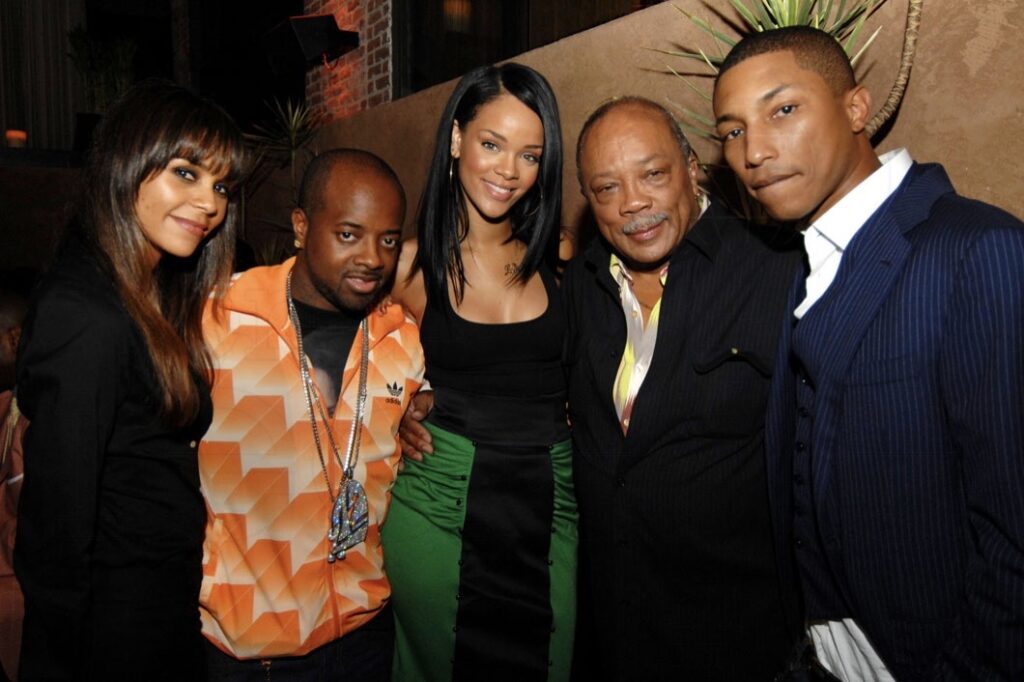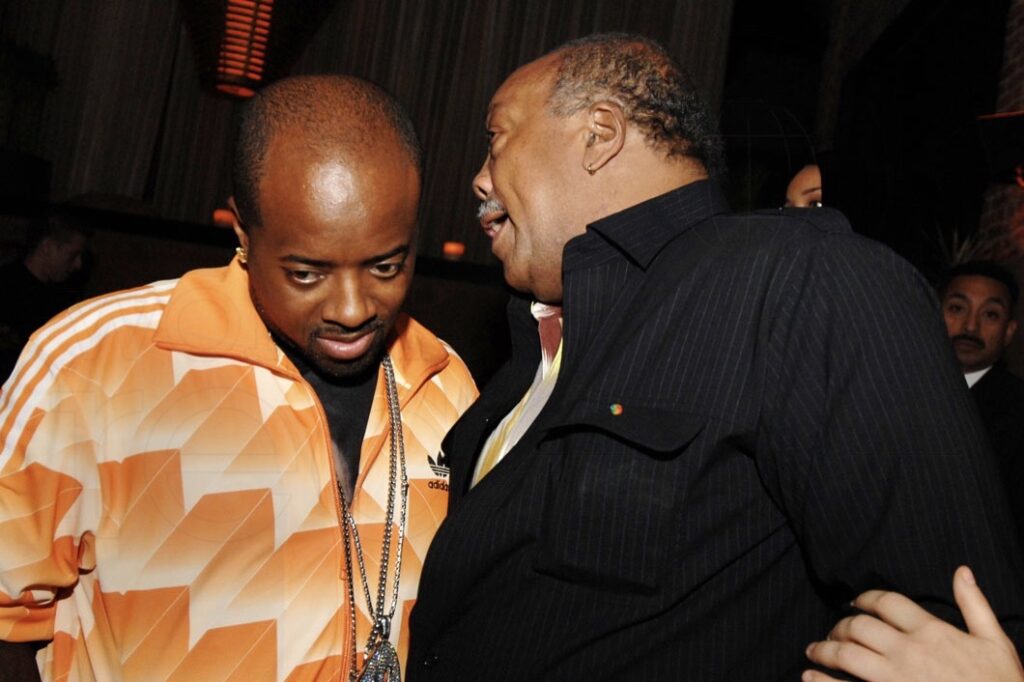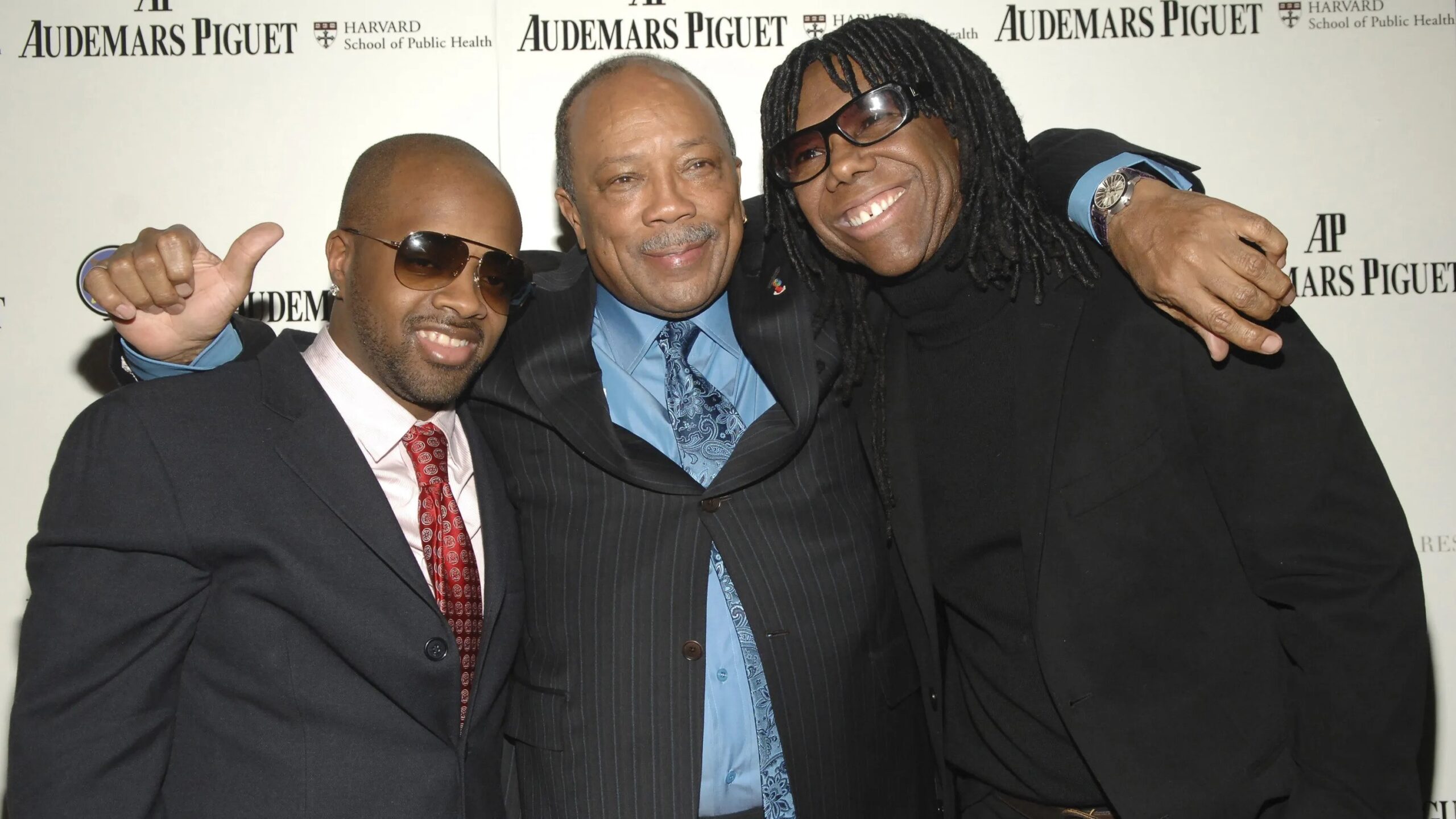When music icon Quincy Jones passed away at the age of 91 last November, it sent a wave of reflection through the music world. One of those most deeply impacted was Jermaine Dupri, the Atlanta-born producer, rapper, and founder of the So So Def label, who credits Jones not just as an idol, but as a profound personal influence.
Dupri recently opened up about the bond he shared with Jones, and the impression the legendary producer left on both his music and his life. “He gave me much more confidence about music and life,” Dupri shared. That statement captures the dual legacy Jones leaves behind—one rooted not just in the music he created, but the people he mentored and inspired.
Their relationship was far more than professional. “He called me his little brother, and I was always at his house,” Dupri reminisced. He spoke fondly of time spent chatting over homemade hamburgers in Jones’ Los Angeles home. Jones even influenced Dupri’s transition to a vegan lifestyle—a personal change sparked by the intimacy of their conversations.
For Dupri, Jones’ career wasn’t just legendary—it was a template. Jones’ mastery across genres, decades, and even continents, served as a guidebook. From his jazz roots to orchestrating film scores and partnering with the King of Pop, Michael Jackson, Jones embodied a rare kind of creative omnipresence. “I patterned myself after him in my own way,” Dupri said, acknowledging that his own approach to music, business, and mentorship owes much to the foundation Jones laid.
Dupri’s career, too, has been decorated. He’s produced records for some of the most celebrated names in R&B and hip-hop, including Usher, Mariah Carey, and Ludacris. A 2018 inductee into the Songwriters Hall of Fame, Dupri has consistently remained a driving force in shaping the sound of contemporary Black music.
This July, Dupri will lead a tribute performance titled ESSENCE Flowers at the annual Essence Festival of Culture in New Orleans—a festival he calls “the Blackest festival that we have in America.” The performance is designed not only to honor Quincy Jones but also to educate and inspire a new generation of music lovers.
“This is the Blackest festival that we have in America, and I feel like Quincy is the greatest Black producer of American Black music,” Dupri told USA TODAY. “I wanted something that translated to the generation of people that I feel like my music is made for and a younger audience.”
Dupri promises to go all in, crafting what he calls “the tribute of all tributes.” His vision is panoramic—an immersive, narrative-driven performance that doesn’t merely play Jones’ hits but recontextualizes them for modern ears. “A lot of the conversations we had, they’ll stick with me for the rest of my life,” Dupri said, indicating that this performance is deeply personal.
One of the featured tracks in Dupri’s set is the late ’90s hit “Keep On, Keepin’ On,” a collaboration between MC Lyte and Xscape that sampled Jackson’s “Liberian Girl”—a track Jones co-produced. Dupri wants the audience to experience the full circle of that moment, from the original Jones creation to its reincarnation in hip-hop. “If you hear MC Lyte’s version, you might not realize that it’s ‘Liberian Girl,’” Dupri explained. “That’s what I’m going to do in my set; I’m going to make you realize that you might not even realize how much Quincy Jones you have listened to.”

This musical unmasking will be a central theme of the tribute. Jones’ influence is so embedded in the DNA of American music that people often consume his work without realizing it. That’s especially true in hip-hop, where producers have long sampled his compositions. Dupri’s tribute aims to spotlight these invisible threads.
Joining Dupri on stage will be a host of artists who’ve touched or been touched by Jones’ legacy. SWV will perform their signature hit “Right Here,” which borrows from Jackson’s “Human Nature,” another Jones-co-produced gem. Hip-hop mainstays The Pharcyde and Mobb Deep are also part of the celebration, representing how Jones’ work laid the groundwork for countless rap classics.
Another showpiece of the tribute will be “The Secret Garden (Sweet Seduction Suite),” Jones’ sensual 1989 collaboration featuring Al B. Sure!, James Ingram, El DeBarge, and Barry White. Al B. Sure! will reprise his role on the track, joined by Tyrese and Robin Thicke—both of whom participated in a modern, up-tempo remake produced by Dupri for Jones’ 2010 album Q: Soul Bossa Nostra.
That project, Jones’ final studio album, was a curated celebration of his career through the lens of a new generation. “Quincy gave young producers the opportunity to take one of his songs and remix it,” Dupri noted. “It was a way to keep his music alive and relevant.” Thicke also joined Dupri on a revamped version of “P.Y.T. (Pretty Young Thing),” originally performed by Michael Jackson. The very idea of remixing Quincy Jones is both an homage and an exercise in daring—only someone of Dupri’s stature could pull it off with finesse.
Even as Dupri honors the past, he’s still heavily invested in the future of music. He continues to produce and mentor, recently signing Canadian R&B duo Dvsn to his label. Their 2022 track “If I Get Caught” showcased his commitment to evolving the genre without losing its roots.
Dupri also worked with singer Ari Lennox on her song “Soft Girl Era,” co-producing a track that exemplifies the current wave of emotionally rich, vocally-driven R&B. Another recent win came with Muni Long’s “Made For Me,” a heartfelt ballad that went viral on TikTok and earned a Grammy Award for its “Live On BET” performance version. “It’s really about going in the studio with talented people that listen and pay attention to the elements that have created songs that are bigger than the songs that they make,” Dupri said.
Despite his embrace of new sounds and platforms, Dupri remains vocal about what he sees as a dilution in musical depth. He caused a stir recently when he suggested that today’s R&B artists lack the spiritual grounding once provided by the Black church—a traditional influence that shaped many of the genre’s pioneers.
“You can go in your room and make a song and get on the charts. That’s amazing,” he said. “But the simplicity of it at some point doesn’t live up to the extraordinary space that I know I grew up listening to. People don’t understand how important having these pieces in the studio with you are.”
In essence, Dupri is urging today’s artists to look backward in order to move forward. His point isn’t to shame or exclude, but to challenge newer creators to seek depth, legacy, and intention. For him, musical greatness isn’t just about catchy hooks and social media numbers—it’s about connection, craftsmanship, and continuity.

Quincy Jones represented all those things and more. His body of work is a masterclass in versatility, creativity, and excellence. From jazz to pop, from Michael Jackson’s Thriller to film scores like The Color Purple, Jones didn’t just follow trends—he set them. And he mentored others to do the same.
Dupri’s upcoming tribute is not just a performance—it’s a mission. It’s an attempt to encapsulate what Quincy Jones meant not only to one man, but to an entire culture. It’s also a reminder of how Black music, in all its forms, is connected across time, style, and generations.
Jermaine Dupri’s ESSENCE Flowers performance will do more than remember Quincy Jones—it will reintroduce him. To a younger generation, perhaps more familiar with his samples than his name, the tribute offers an essential lesson in lineage and legacy. To older fans, it promises to be a celebration of memories, milestones, and music that changed the world.
In a time when music can be fleeting, Dupri’s tribute stands as a lasting testament to an artist whose work is anything but. “I patterned myself after him in my own way,” Dupri said—and this performance is the proof. As the curtain rises at the Essence Festival, Dupri won’t just be performing Quincy’s music; he’ll be embodying it, living it, and passing it on.
Because that’s what Quincy Jones did—and always will do.



